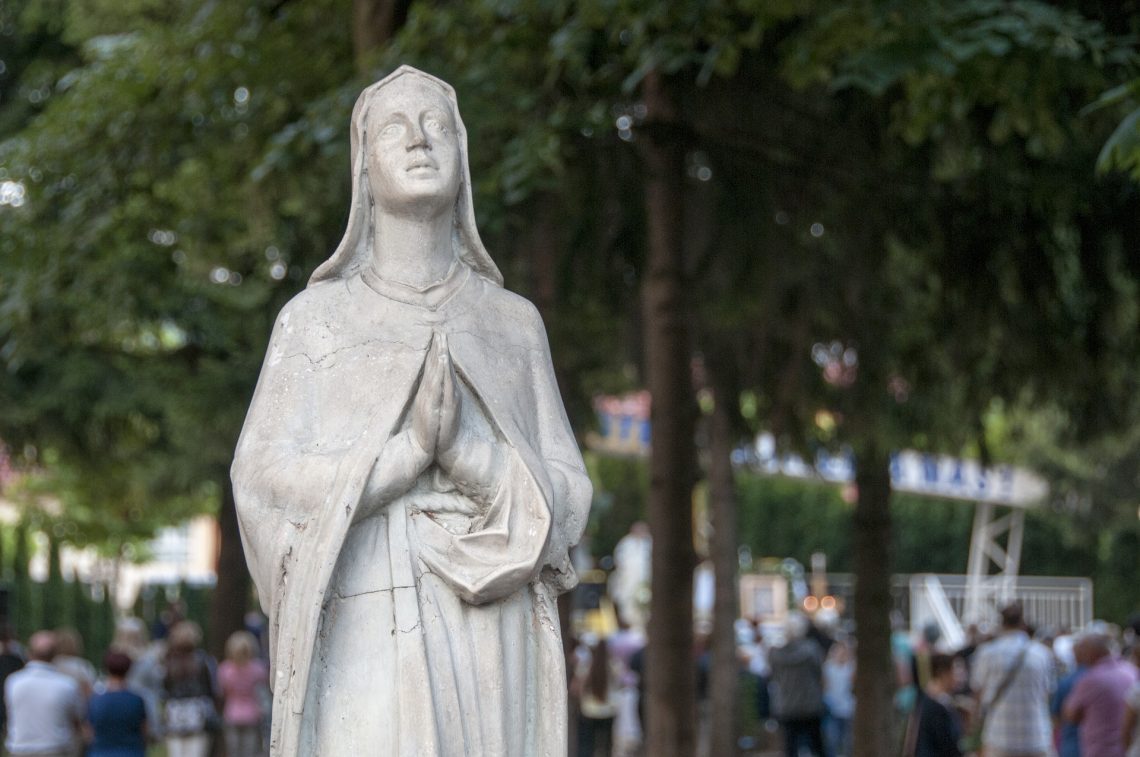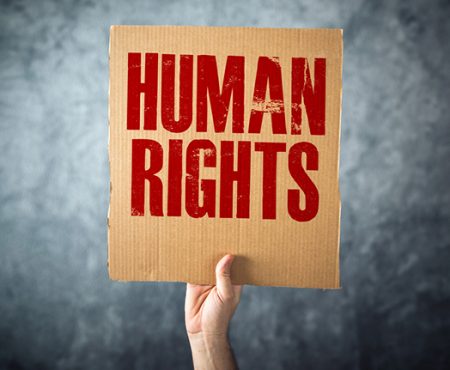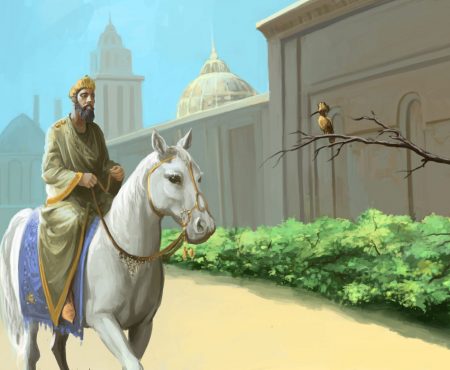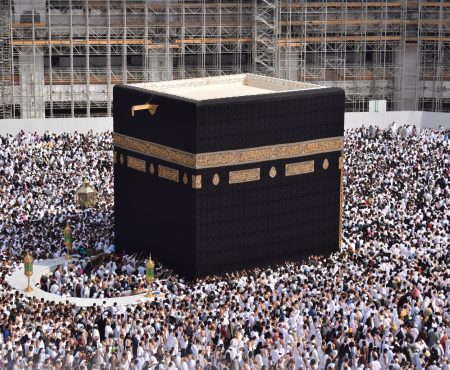The Virgin Mary in Islam
The Virgin Mary is a female figure respected both in Christianity and Islam alike. Her story also happens to be one of the most fascinating. Although there are differences in the accounts of her life in Christian and Islamic sources, the two sides have plenty in common as well. Here we will be taking a brief look at the Islamic narrative on the early life of the Virgin Mary and how she is regarded in Islam.
It all begins when Hannah (Anna) gets married to Imran (Joachim), a notable figure amongst Israelites and a Prophet according to some sources, with an entire chapter in the Qur’an named after him. Due to Hannah’s infertility, the two were unable to have any children for several years after their marriage.
As Hannah was sitting under a tree one day, she noticed a bird feeding her offspring in their nest. With tears in her eyes and a broken heart, she began a desperate plea to the Almighty God from the bottom of her heart for him to grant her a child. Her sincere plea was accepted and shortly after, Hannah was pregnant with a child (Mary).
Imran had also received a revelation from the Almighty God, right around the same time, giving him glad tidings of a blessed addition to his family – one who would be a messenger of God, capable of healing the terminally ill, and bringing the dead back to life with God’s permission.
The good news referred to their grandson, Jesus, but after Imran shared the news with Hannah, she assumed that the news referred to the child she was carrying. As a thankful gesture, Hannah decided to devote her child to be a servant of God at the temple.
“When the wife of Imran said, O my Lord! I have vowed to You what is in my womb to be dedicated for Your services (free from all worldly work), so accept this from me. Verily You are the All-Hearer the All-Knower.” (3:35)
At the time, serving at the temple was task held by men. When her child was born, Hannah felt perplexed, not knowing what to do. She made a vow to devote her child to service at the temple, but it was highly unlikely that the temple authorities would accept a female for such a role.
By the time Mary was born, her father had passed away. When she finally became old enough, her mother offered her as a gift to the temple in order to be a servant at the temple. Hannah also requested that one of the saints look after Mary’s upbringing, causing the saints to compete for this role due to her beauty and innocence.
The saints drew lots, and by God’s will, the Prophet Zechariah who happened to be married to Mary’s aunt, Ashya (Elizabeth) had won custody of her. Zechariah also happened to be the most suitable for this role, not only due to their family relationship, but also because of his role as a Prophet and the most respected authority at the temple. Due to his credibility, Mary’s service at the temple was accepted by the other saints.
“So, her Lord accepted her with goodly acceptance. He (Allah) made her grow in a good manner and put her under the care of Zachariah.” (3:37)
This would mark the beginning of Mary’s life at the temple. Mary devoted her life to serving God. She would fast throughout the days and would pray throughout the nights at the tender age of only nine years old. It didn’t take long before she built a reputation as the most devout, chaste, and pious person among the men and women of her time.
When checking up on her, Zechariah would regularly find her supplied with various forms of sustenance from heaven including out of season fruits, wondering where all of it came from:
“Every time he (Zachariah) entered her Mehrab (Worshipping room) to visit her, he found her supplied with sustenance. He said: O Mary! From where have you got this? She said: This is from Allah. Verily, Allah provides sustenance to whom He wills without limit.” (3:37)
Soon, she would find herself in the presence of God’s angels who informed her of her special status:
“And when the angels said: O Mary. Verily Allah has chosen you, purified you, and chosen you above the women of the worlds. O Mary! Submit yourself with obedience to your Lord and prostrate yourself, and bow down along with those (angels) who bow down.” (3:42-43)
As she was praying in her designated place of worship one day, she was approached by God’s angels, informing her of a blessing that is soon to come:
“O Mary! Verily Allah gives you the glad tidings of a Word from Him, his name shall be the Messiah Jesus the son of Mary held in honor in this world and in the hereafter and will be one of those near to Allah. He will speak to the people in the cradle and in manhood, and he will be one of the righteous.” (3:45-46)
Her name has been mentioned in the Muslim holy book, Quran, many times, being the only woman mentioned by name. Islam regards Mary as a perfect woman as evident in a narration by Prophet Muhammad (PBUH) referring to Mary as such:
“Many men have achieved perfection and among women, Mary daughter of ‘Imran and Asiyah wife of Pharaoh.”
Mary has many unique qualities and virtues according to the Qur’an, with the following giving the reader only a glimpse of the status of the honorable lady in Islam:
- Chosen by Allah
In one verse, Allah’s angels tell Mary that she has been chosen and purified by Allah. This may lead many to question why she was chosen and under what merit which leads us to another one of her significant qualities.
- Chastity
Another verse indicates that God’s spirit was blown into the womb of Mary as a result of her guarding the chastity of her womb:
“And Mary, daughter of Imran, who guarded the chastity of her womb, so We breathed into it of Our spirit…” (66:12)
- Ranked above the women of her time
Allah’s angels tell Mary that Allah has chosen her “above the women of the worlds”, giving her a special place amongst the women of her time.
- A sign from Allah
The Qur’an indicates that “… We made her and her son a sign for all the nations.” (21:91) Mary and Jesus being a sign indicates that the virgin birth of Jesus involved both of them and was a sign to all of mankind. However, both had many other signs or miracles independent of each other.
- Truthful
In verse 75 of the 5th chapter of the Qur’an, Jesus’ mother (Mary) is referred to as a truthful woman or a siddiqah, which is a feminine form of siddiq – a term often used in the Qur’an in order to describe prophets or people of a saintly nature. The truthful are also referred to in the Qur’an as “those on whom is the Grace of Allah.”
Many other characteristics have been associated with The Virgin Mary in the Qur’an such as one who is a devotee or an obedient servant of God. Based on certain verses in the Qur’an, many have suggested that she may have even been a female Prophet as every time the Prophet Zechariah approached her, he was left astounded by her spiritual status as well as the heavenly provisions at her disposal. Furthermore, frequent visits by angels to Mary along with their informing her of divine revelations were among other reasons certain scholars believed Mary to be a Prophetess.
The one point that stands, however, is that Saint Mary was a highly honorable lady and a perfect role model for all women regardless of age and origins.






Tous les commentaires (2)
According to exegesis and literature, Gabriel appeared to Mary, who was still young in age, in the form of a well-made man with a “shining face” and announced to her the birth of Jesus. After her immediate astonishment, she was reassured by the angel ‘s answer that God has the power to do anything. The details of the conception are not discussed during these angelic visits, but elsewhere the Quran states (sura 21, ( Al-Anbiya ), ayah 91
This article is about Mary in Islam. For other uses, see Saint Mary (disambiguation) and Virgin Mary (disambiguation) . Virgin, The Purified, The Exalted, Mother of Isa, Mother of The Messiah, Keeper of Chastity, Mystic, Female Exemplar, Maternal Heroine, Queen of the Saints